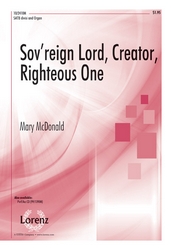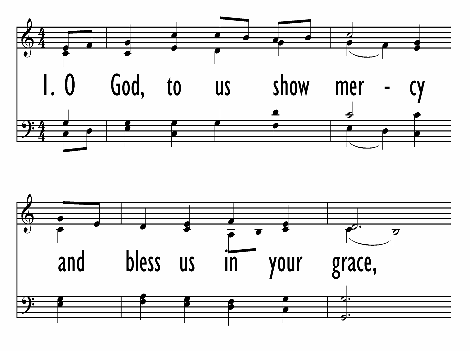This short communal prayer for God's blessing may have served as a liturgical prayer of the people at the close of worship. Its echoes of the priestly benediction (Num. 6:22-27) suggest that it may have been used just prior to that divinely authorized blessing. The prayer begins with an allusion to the priestly blessing and asks that God will fulfill the purpose of that blessing-to bring "salvation among the nations" (v. 2; st. 1). In its request that all earth's people may join in praise to God, whose universal rule is just and good (st. 2), this prayer anticipates God's blessings upon the earth for such praise. And it anticipates as well the whole world's recognition that the LORD is the one true God (st. 3). The versification of this psalm was altered from The Book of Psalms (1871), a text-only psalter that was later published with music in 1887.
A communal prayer for God’s promised blessing on his people; a call to all nations to join in God's praise.
Scripture References:
[Psalm 67]
st. 1 = vv. 1-2
st. 2 = vv. 3-4
st. 3 = vv. 5-6
This short communal prayer for God's blessing may have served as a liturgical prayer of the people at the close of worship. Its echoes of the priestly benediction (Num. 6:22-27) suggest that it may have been used just prior to that divinely authorized blessing. The prayer begins with an allusion to the priestly blessing and asks that God will fulfill the purpose of that blessing-to bring "salvation among the nations" (v. 2; st. 1). In its request that all earth's people may join in praise to God, whose universal rule is just and good (st. 2), this prayer anticipates God's blessings upon the earth for such praise. And it anticipates as well the whole world's recognition that the LORD is the one true God (st. 3). The versification of this psalm was altered from The Book of Psalms (1871), a text-only psalter that was later published with music in 1887.
Liturgical Use:
The combination of blessing from God and praise to God in this psalm makes it most useful at the end of worship. It can also be used for Pentecost and whenever the church reflects on its evangelistic mission, since the psalmist calls all nations to acknowledge and praise God.
--Psalter Hymnal Handbook, 1988


 My Starred Hymns
My Starred Hymns







